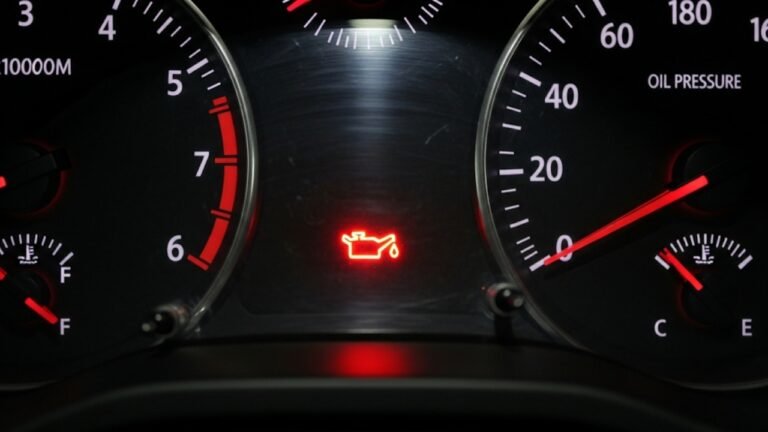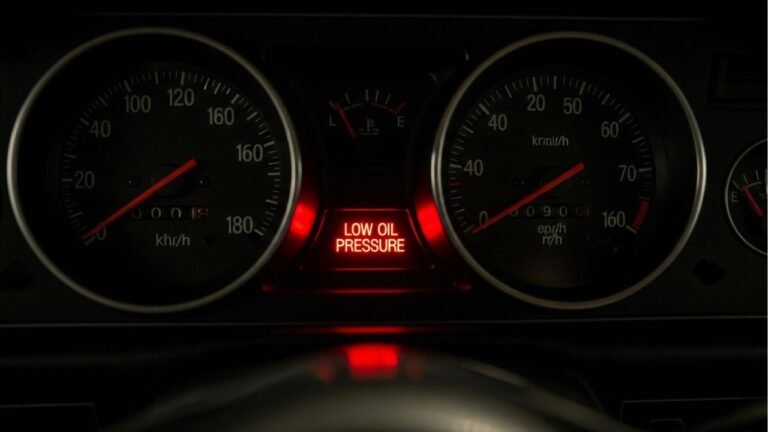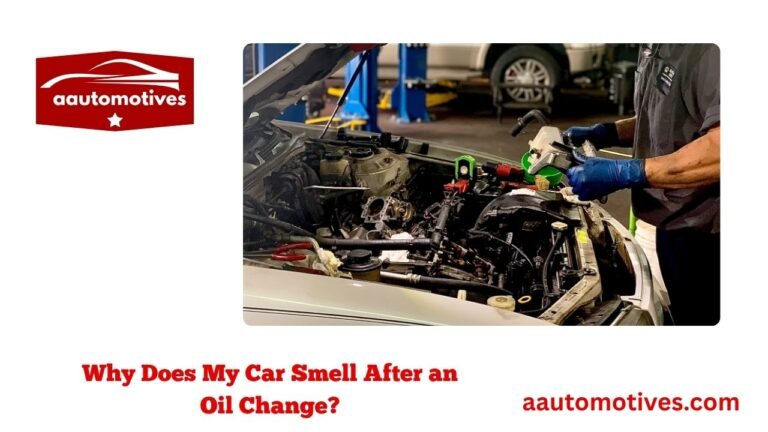How Long Will Oil Last in a Car

I still remember the time I ignored my oil change light for a few extra hundred miles. My thinking? “It’s just oil. What’s the worst that could happen?” Oh, I learned. That tiny neglect ended up costing me way more than an oil change ever would have. And that’s the thing about oil—it’s small, unseen, but absolutely vital.
If you’ve ever wondered how long will Oil Last in a Car, you’re not alone. It’s one of those questions people often push aside—until it’s too late. Whether you’re driving to work, picking up groceries, or heading on a weekend trip, oil is silently doing its job every mile of the way.
Let’s explore the full picture, not just numbers. This isn’t just another article; it’s more like a friendly guide over coffee. We’ll mix in expert advice, personal stories, and clear facts. You’ll leave not only with answers but with a whole new perspective on oil and your engine’s health.
In This Article
- 1 Why Oil Matters More Than You Think
- 2 So, How Long Will Oil Last in a Car?
- 3 Warning Signs That Your Oil’s Had Enough
- 4 Understanding the Oil Change Intervals
- 5 How Climate Affects Oil Longevity
- 6 The Role of Oil Filters in Oil Life
- 7 Mileage vs. Time: Which One Really Matters?
- 8 Common Myths About Oil Life That Need Busting
- 9 How Your Driving Habits Affect Oil Longevity
- 10 Oil Monitoring Systems: Can You Trust Them?
- 11 What Happens If You Wait Too Long?
- 12 Quick Tips to Maximize Oil Life
- 13 Summary Table: Key Takeaways
- 14 Final Thoughts: It’s More Than Just a Light on the Dash
Why Oil Matters More Than You Think

Think of oil as a cushion between metal parts. It keeps friction down, cools things off, and carries away gunk. As you drive, though, that oil doesn’t stay the same. It breaks down, gets dirty, and loses its punch.
Here’s what good oil does:
- Lubricates moving parts.
- Reduces engine heat.
- Prevents rust and corrosion.
- Cleans out debris and contaminants.
But here’s the truth: no oil lasts forever. If you’re wondering how long will Oil Last in a Car, you have to consider many factors—driving habits, engine type, and even the weather. It’s not a one-size-fits-all answer, and that’s what makes it so important to understand.
So, How Long Will Oil Last in a Car?
Let’s get to the heart of the matter. On average, engine oil lasts between 3,000 and 10,000 miles—but there’s a catch. That wide range depends on several things.
There are three major oil types:
| Oil Type | Typical Lifespan | Best Use Case |
| Conventional Oil | 3,000–5,000 miles | Older vehicles, basic daily commutes |
| Synthetic Blend | 5,000–7,500 miles | Moderate driving, light towing |
| Full Synthetic | 7,500–15,000 miles | High-performance engines, extreme temperatures |
Now, what about that “(37)” in the keyword? If you’re asking how long will Oil Last in a Car, you might be talking about a 2010-2014 Dodge Caravan (model 37) or even using “37” as shorthand for a specific mileage check. Either way, the principles are the same.
Here’s what affects oil life the most:
- Driving Style: Aggressive driving = faster oil breakdown.
- Trip Length: Short trips don’t let oil warm up fully.
- Climate: Extreme heat or cold wears oil out faster.
- Engine Age: Older engines often need more frequent changes.
I’ve driven a Dodge Grand Caravan (model 37) for years, and I’ve learned the hard way that stretching out oil changes is risky business. These vehicles do well with full synthetic oil, especially if you’re pushing past 100,000 miles.
Warning Signs That Your Oil’s Had Enough
Oil doesn’t scream when it’s tired. But if you listen closely, your car will give you little clues that something’s off.
Here’s what I’ve noticed—and you might too:
- Knocking or Ticking Noises: That soft rattling sound? It’s metal begging for lubrication.
- Dirty, Gritty Oil: Check the dipstick. If it’s black and thick, it’s time.
- Burning Smell: Like burnt toast, but worse. This is serious.
- Oil Light On: Don’t ignore it. That light is your car’s way of saying “Help!”
The mistake I once made was ignoring these signs, thinking I had a few hundred miles left. One overheated afternoon, my engine stalled mid-traffic. Turned out the oil was almost sludge. Lesson learned.
These warnings matter. Your car is basically trying to save itself.
Understanding the Oil Change Intervals
You’ve probably heard the old advice: change your oil every 3,000 miles. That’s from decades ago. Today’s oils are much better, and engines are smarter.
So, how long will Oil Last in a Car? It depends on the oil and your vehicle. Here’s a quick breakdown:
- Conventional Oil: Stick to 3,000-5,000 miles.
- Synthetic Blend: Go up to 7,500 miles.
- Full Synthetic: Many brands promise up to 15,000 miles, but be cautious.
Some newer cars have oil life monitoring systems. If your Dodge Caravan (37) has this, trust it. These systems measure your driving patterns, temperatures, and engine loads to estimate oil health.
But here’s a rule I follow: check your oil every month. It’s a quick dipstick test, takes two minutes, and can save you from major repairs.
How Climate Affects Oil Longevity
Imagine running a marathon in 100°F heat—or in a snowstorm. Your body wouldn’t last the same in both, right? The same logic applies to your engine oil.
If you live in places like Arizona or Texas, the extreme heat can thin out oil faster. It also increases engine stress. On the flip side, cold places like Minnesota or Canada can make oil thick and sluggish at start-up.
So, how long will Oil Last in a Car if you’re driving in these conditions?
- In hot climates, go for full synthetic oil with higher heat resistance.
- In cold climates, look for oils rated “0W” or “5W”—these flow better in low temps.
- Consider changing oil slightly more often if you’re dealing with extreme weather all year.
When I moved from California to Colorado, I had to switch oil brands. My old oil was too thick on cold mornings, and my engine cranked like an old lawnmower. Just a change in oil type made a huge difference.
The Role of Oil Filters in Oil Life
Let’s not forget the oil filter. It’s like your liver—it filters out the bad stuff so the good can keep flowing. But filters also wear out.
If you’re asking how long will Oil Last in a Car and not changing the oil filter, you’re only doing half the job. Dirty filters mean clean oil turns dirty fast. It’s like putting fresh water in a dirty bottle.
Most mechanics recommend changing your oil filter with every oil change, and I agree. It’s cheap insurance. In fact, once I skipped it and my oil turned dark way too soon. Lesson learned: never skimp on the filter.
Mileage vs. Time: Which One Really Matters?
Most people talk about mileage. But time is just as important. Oil ages even if you’re not driving. That shocked me when I left my car parked for six months during a long trip abroad. When I got back, the oil looked fine—but the engine ran rough. Turns out, oil breaks down just sitting there.
Here’s the rule I follow now: Change oil every 6 months, even if you haven’t hit the mileage limit.
Let’s say you drive less than 5,000 miles a year—maybe you work from home or live in a walkable city. You might think your oil is fine. But after six months, it starts collecting moisture, oxidation, and sludge, even if the engine isn’t running much.
So, how long will Oil Last in a Car? Not forever. And not just based on miles. Time matters too.
Common Myths About Oil Life That Need Busting
Let’s clear the air. A lot of folks have heard things that simply aren’t true. These myths can cost you money—or worse, your engine.
Myth 1: Synthetic Oil Never Needs Changing
False. It lasts longer, sure. But even synthetic oil degrades over time. If you stretch it too far, it won’t protect your engine.
Myth 2: You Must Change Oil Every 3,000 Miles
This was true decades ago. But with modern engines and better oils, many cars—especially the Dodge Caravan (37)—can go much longer.
Myth 3: Dark Oil Means It’s Bad
Not always. Oil naturally gets darker as it does its job. Look for texture and smell, not just color.
Myth 4: Topping Off Is the Same as Changing
Nope. Topping off just adds oil—it doesn’t remove the dirty stuff or the contaminants. You still need full changes.
Believing these myths can give a false sense of security. I once skipped an oil change because my oil “looked fine.” That cost me a rough idle and a clogged filter. Don’t make the same mistake.
How Your Driving Habits Affect Oil Longevity
This part might hit close to home. The way you drive directly affects how long your oil lasts. Think of oil like your morning coffee—if you burn through your energy fast, you’ll need a refill sooner.
Here’s what shortens oil life:
- Stop-and-Go Driving: Constant starts and stops create more heat and friction.
- Short Trips: The oil doesn’t get hot enough to burn off moisture and fuel vapors.
- Heavy Loads: Towing or carrying gear stresses the engine, making oil work harder.
- High Speeds: Frequent highway driving at high RPMs increases heat and wear.
Now, if you’re asking how long will Oil Last in a Car, and you drive mostly in cities with traffic lights every 100 feet—your oil won’t last as long as someone cruising country highways.
I learned this the hard way during a hot summer in Phoenix. Daily city traffic, AC on full blast, and my oil started breaking down around 4,000 miles—well before I expected.
Oil Monitoring Systems: Can You Trust Them?
Many modern cars—including the Dodge Caravan model 37—come with oil life monitoring systems. These are smart sensors that use algorithms to calculate oil condition based on temperature, engine load, speed, and more.
But here’s a key insight: They don’t test the oil itself. They just estimate based on usage patterns. So while they’re helpful, they’re not perfect.
Use them as a guide, not a gospel.
I personally like to check my oil manually once a month—especially if I’m planning a road trip. It gives peace of mind. Just pull out the dipstick, wipe it clean, dip it again, and look for color, consistency, and level.
If you trust only the dashboard light, you might be reacting too late. Prevention is always better than repair.
What Happens If You Wait Too Long?
This is where the rubber meets the road—literally. Waiting too long to change your oil can lead to serious, even permanent engine damage.
Here’s what might happen:
- Sludge Build-Up: Dirty oil turns thick and sticky, clogging engine parts.
- Overheating: With no lubrication, friction increases and so does heat.
- Increased Wear: Metal parts grind together, shortening engine life.
- Poor Fuel Economy: Your engine works harder and burns more fuel.
- Complete Engine Failure: Worst-case scenario, and yes—it happens.
I once had a friend who hadn’t changed oil for over a year. His engine eventually seized up on the freeway. The repair cost? Over $4,000. All because he didn’t take 30 minutes for an oil change.
So, how long will Oil Last in a Car? It depends. But pushing it too far isn’t worth the risk.
Quick Tips to Maximize Oil Life
We’ve talked about how long oil lasts—but what if you could make it last longer (safely)? Good news: you can.
Here’s how:
- Use the Right Oil: Always check your owner’s manual. Dodge Caravan (37) often runs best on full synthetic 5W-20 or 5W-30.
- Keep Your Engine Clean: Regular maintenance helps oil stay cleaner longer.
- Change the Filter: Don’t skip it—it’s crucial.
- Check Oil Monthly: Get into the habit. It takes 2 minutes and saves headaches.
- Drive Gently: Smooth driving = longer oil life.
- Avoid Short Trips: Combine errands to let your engine fully warm up.
These small habits can stretch your oil’s life by 20–30%. And more importantly, they’ll protect your engine’s health long-term.
Summary Table: Key Takeaways
| Factor | Impact on Oil Life | What to Do |
| Oil Type | Longer life with full synthetic | Choose based on your driving and budget |
| Driving Habits | Aggressive = faster wear | Drive smoothly and avoid short trips |
| Climate | Extreme temps shorten oil life | Use oil suited for hot or cold conditions |
| Oil Filter Condition | Dirty filter = dirty oil | Replace with every oil change |
| Time Since Last Change | Oil ages even when parked | Change oil every 6 months |
| Monitoring System | Helps, but not foolproof | Still check oil manually |
Final Thoughts: It’s More Than Just a Light on the Dash
If you’ve ever thought, “I’ll just wait a little longer,” you’re not alone. We all get busy. But the next time that oil light flickers, remember—it’s not just a minor warning. It’s your car’s cry for help.
When it comes to how long will Oil Last in a Car, the real answer is: it depends—on your habits, oil type, vehicle age, and environment. But if you listen closely to your engine and trust your instincts, you’ll know when it’s time.
Think of oil changes like brushing your teeth. Small, routine care prevents big, painful problems later.
So go ahead—give your car the care it deserves. You’ll save money, avoid stress, and most importantly, keep cruising without a worry in the world.






